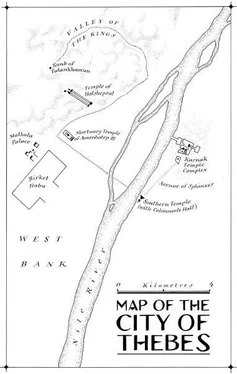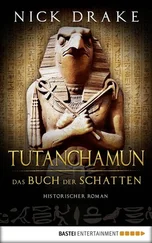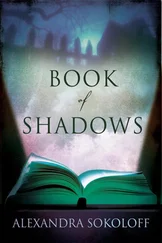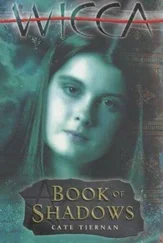Nick Drake - Tutankhamun - The Book of Shadows
Здесь есть возможность читать онлайн «Nick Drake - Tutankhamun - The Book of Shadows» весь текст электронной книги совершенно бесплатно (целиком полную версию без сокращений). В некоторых случаях можно слушать аудио, скачать через торрент в формате fb2 и присутствует краткое содержание. Жанр: Исторический детектив, на английском языке. Описание произведения, (предисловие) а так же отзывы посетителей доступны на портале библиотеки ЛибКат.
- Название:Tutankhamun: The Book of Shadows
- Автор:
- Жанр:
- Год:неизвестен
- ISBN:нет данных
- Рейтинг книги:4 / 5. Голосов: 1
-
Избранное:Добавить в избранное
- Отзывы:
-
Ваша оценка:
- 80
- 1
- 2
- 3
- 4
- 5
Tutankhamun: The Book of Shadows: краткое содержание, описание и аннотация
Предлагаем к чтению аннотацию, описание, краткое содержание или предисловие (зависит от того, что написал сам автор книги «Tutankhamun: The Book of Shadows»). Если вы не нашли необходимую информацию о книге — напишите в комментариях, мы постараемся отыскать её.
Tutankhamun: The Book of Shadows — читать онлайн бесплатно полную книгу (весь текст) целиком
Ниже представлен текст книги, разбитый по страницам. Система сохранения места последней прочитанной страницы, позволяет с удобством читать онлайн бесплатно книгу «Tutankhamun: The Book of Shadows», без необходимости каждый раз заново искать на чём Вы остановились. Поставьте закладку, и сможете в любой момент перейти на страницу, на которой закончили чтение.
Интервал:
Закладка:
I smelt at once the chilly, airless, hollow odour of a tomb opened after a long time-as if the darkness had slowly suffocated the air itself. Khety handed me a lamp, and I entered, cautiously. The thought that this was a trap flitted across my mind. I held the lamp up before me, and tried to see beyond its shivering light.
The room seemed to be of a moderate size. Along one wall was a long bench, holding clay vessels in various sizes, and an astounding array of surgical instruments: obsidian knives, sharp hooks, long probes, cupping vessels and vicious forceps, all precise and highly ordered. Further on were a series of small glass phials with stoppers, each with a label. I opened one. It seemed to be empty. I kept it to examine in the light of day. Further down the shelves were more jars. I opened them at random; they seemed to contain a variety of herbs and spices. But the last one contained something I recognized: the powder of the opium poppy. Further along the shelf were several more jars, all containing the identical substance: a substantial supply. The bench was highly ordered and efficient.
But as I stepped forward, I felt something crack and shatter beneath my sandals. I squatted down with the lamp and saw the floor was littered with bones: the little skulls and wing-fans of birds; the miniature skeletons of mice, shrews and rats; the jaws and legs of dogs or baboons or hyenas or jackals; and also pieces of larger bones, which I feared were human, smashed into shards. It was as if I had trespassed into a mass grave of all life. I held the lamp up to peer further into the dark. I saw something still stranger: from the ceiling on twine hung many bones, and broken pieces of bones, to make the shattered skeletons of strange, impossible creatures, part-bird, part-dog, part-human.
Shuffling forward, trying not to tread on any more of the remains at my feet, and loathing the creepy touch of the hanging bones in my hair and on my back, I made out a large, low, shadowy object that stood at the end of the room. As I came closer, I saw it was an embalmer’s bench. On the bench was a small wooden box. Behind the bench, I saw a big black circle had been painted on the back wall. The Sun destroyed. I held the lamp up closer, and all around the perimeter of the circle were those strange, disturbing signs I had seen around the box: curves, sickles, dots and dashes. Spattered all across the dark circle were dripping lines of dried, dark blood. I looked again at the embalmer’s bench; in contrast to the wall’s record of butchery, it was as fastidiously clean as the surgical instruments that lined the walls. But they were not for healing. They were for torture. How many victims had he experimented on in here, as they screamed for mercy, for their lives, or for the mercy of death?
The wooden box carried a label. On it was written, in a neat cursive, one word: ‘ Rahotep ’. It was a gift from Sobek to me. I had no choice but to open it. Inside I saw something I know I will always see whenever I try to sleep. Eyes. Human eyes. Arranged in identical pairs, like jewels on a tray. I thought of Neferet, and the two boys. All had missing eyes. And here was a box full of staring, quizzical, startled eyes, like a tiny audience paying me the closest attention.
41
I closed the box, and returned the eyes to darkness. This gift was a mockery. He had tricked me. He knew I would track him to his house. He knew I still did not understand what he was doing. The eyes were like signs-he was watching me. And if he was watching me, then what else did he know? Suddenly, fear gripped my throat; perhaps he knew about my family-after all, he had seen them at Nakht’s party on the roof of his city house. I must protect them. I would send Khety immediately to organize a secure guard. But then another thought came crashing in against the first; how had he realized I had discovered the connection with Mutnodjmet? And then another, still more alarming. We had left Mutnodjmet unguarded.
The moment the boat docked at the Malkata Palace harbour, Simut and I raced through the guarded entrance doors, and down the long corridors. I racked my brains to recall the route to Mutnodjmet’s chambers, but the shadowy labyrinth of the palace confused me.
‘Take me to Khay’s office!’
Simut nodded, and we ran on. I didn’t bother to rap on the doors, but burst through. He was fast asleep, snoring on his couch, his head back, robes still on, the cup of wine empty. I shook him violently, and he started awake like a man in an accident, staring wildly at the two of us.
‘Take us back to Mutnodjmet’s apartments, now!’
He looked puzzled, but I yanked him to his feet and propelled him through the door. ‘Take your hands off me!’ he cried in his querulous voice. ‘I am quite capable of walking unaided.’
He struggled, trying to rearrange his appearance into something like dignity.
The doors to Mutnodjmet’s apartment were shut, and the cords tied and sealed. As we approached, I felt something crunching lightly underfoot. Puzzled, I crouched down and saw, in the light of our lamps, something glittering. I wiped some up on my finger and tested it on my lips. Natron salt. It was most likely the spillage from a sack that someone had carried into the apartments. But why would anyone do such a thing?
I broke the seals on the doors and we entered carefully. All was silence and darkness. There was no sign of the twin dwarfs. Holding my lamp before me, I advanced along the corridor that led to the salon. But as I passed the store chambers, I saw something wrong. Two of the big storage jars had had their contents-grain and flour-emptied on the floor in neat piles. Simut glanced at me. I carefully removed the lid of one of the jars. Crouched inside was a small figure in good clothes up to his chest in his own blood; I looked more closely and saw the hilt of his jewelled dagger thrust into his heart. The back of his little head was smashed in. I opened the other one. The same.
We entered the salon. There had been a struggle. Furniture had been thrown over. Goblets lay shattered on the floor. And there on a low gilded bench was a dark, grey mound. I carefully pushed handfuls of the salt away. Mutnodjmet’s eye-sockets stared back at me, white and empty; her hollow face, glittering with scattered salt crystals, was desiccated and wrinkled as if time had suddenly sucked her dry. Her lips were shrivelled and white, and her open mouth was dry as a cloth left out in the midday sun.
‘What’s happened to her?’ whispered Simut.
‘The natron has absorbed the fluids from her body. By now all her internal organs will have begun to turn to dark brown mush.’
‘So was she alive when he did this to her?’ The soldier shook his head at such sophisticated barbarity.
‘It would have taken time for her to die like this. She must have been maddened with thirst. And that’s what fascinates him. Watching people suffer and die, in great detail. But I’m not sure he does it only for the pleasure of witnessing their pain. The pain is only part of the process, not the end of it. He’s seeking something else. Something more original.’
‘But what?’ asked Simut.
I stared down at the poor eyeless woman. It was the only important question.
As we walked back up the passageway, I remembered the little glass phial I had found in Sobek’s laboratory. I opened it, but it seemed to contain nothing, despite the stopper and the carefully noted date. I noticed at the bottom a faint dusting of glittery white residue. I dabbed my finger and licked it carefully. More salt; but not natron salt. Some other kind of salt. It tasted familiar. But I could not place it.
42
Horemheb’s magnificent ship of state, the Glory of Memphis , was now anchored out on the still water of the lake. As it loomed over its lucid mirror image, it looked like a menacing weapon. The Eye of Horus was painted repeatedly all along the hull, granting special protection. In amongst the Eyes there were images of the ram’s head of Amun, and winged falcons, and the figure of the King trampling his enemies underfoot. On the side lookouts the figure of Montu, God of War, strode defiantly; and the deckhouses were painted with multicoloured circles. Even the blades of the oars were decorated with the Eye of Horus. The menace was intensified by the corpses of seven Hittite soldiers, hanging head downwards, twisting slowly as they rotted in the morning sunlight.
Читать дальшеИнтервал:
Закладка:
Похожие книги на «Tutankhamun: The Book of Shadows»
Представляем Вашему вниманию похожие книги на «Tutankhamun: The Book of Shadows» списком для выбора. Мы отобрали схожую по названию и смыслу литературу в надежде предоставить читателям больше вариантов отыскать новые, интересные, ещё непрочитанные произведения.
Обсуждение, отзывы о книге «Tutankhamun: The Book of Shadows» и просто собственные мнения читателей. Оставьте ваши комментарии, напишите, что Вы думаете о произведении, его смысле или главных героях. Укажите что конкретно понравилось, а что нет, и почему Вы так считаете.











